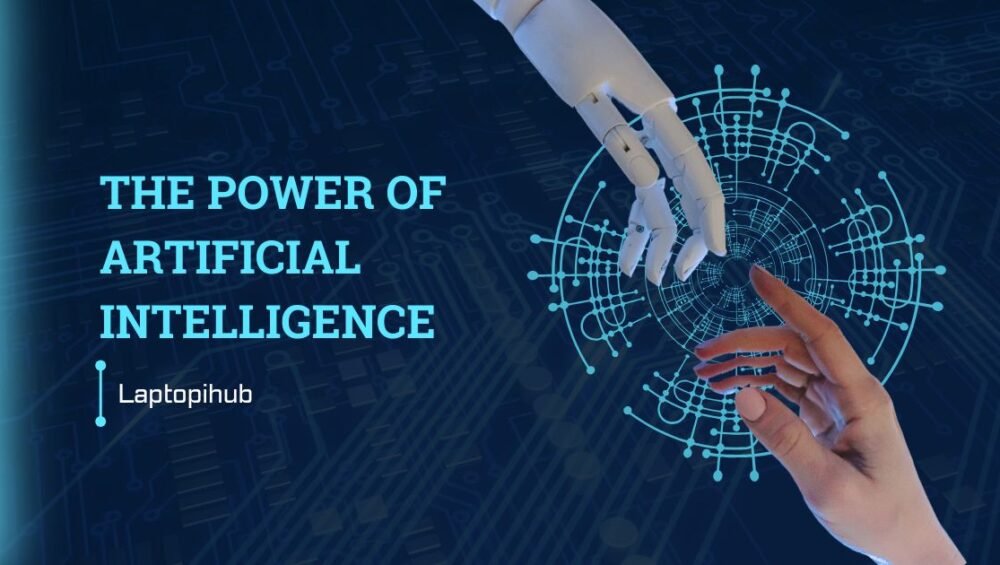Discover how Artificial Intelligence is transforming industries, simplifying lives, and shaping the future of technology around us.
Introduction to Artificial Intelligence
Artificial Intelligence, or AI, is one of the most revolutionary technologies of our time. It allows machines to think, learn, and make decisions like humans. From smartphones to smart cities, AI has become an invisible force driving innovation and progress. Whether it’s recommending your next favorite movie or helping doctors detect diseases, AI is quietly changing how the world operates.
How Artificial Intelligence Works
AI works by using data and algorithms to simulate human intelligence. Machines are trained with massive amounts of data to identify patterns, predict outcomes, and make informed decisions. The more data they receive, the smarter they become. For example, an AI system can analyze millions of photos to recognize faces or study years of medical records to detect early signs of illness. It’s like teaching a child — the more examples you show, the better they understand.
Different Types of AI
Artificial Intelligence can be categorized into two main types: narrow and general AI. Narrow AI focuses on specific tasks, such as voice assistants, spam filters, or recommendation systems. It’s the form of AI most commonly used today. General AI, on the other hand, aims to perform any intellectual task a human can do. Although it’s still in development, it represents the next big leap in AI evolution.

AI in Everyday Life
You may not realize it, but AI is part of your daily routine. When you unlock your phone with your face, AI is at work. When you use Google Maps, AI calculates the fastest route. Even when you shop online, AI predicts what you might want to buy next. It makes life easier, faster, and more personalized without you even noticing.
Artificial Intelligence in Healthcare
AI is transforming healthcare in remarkable ways. It assists doctors in diagnosing diseases more accurately, predicts patient outcomes, and analyzes medical images faster than humans. AI-driven tools are helping identify cancer cells, manage hospital resources, and even discover new drugs. This technology isn’t replacing doctors but enhancing their ability to save lives.
AI in Education
Education is another field being reshaped by AI. Smart learning platforms adapt lessons to each student’s pace, helping them learn better. Teachers use AI to track progress, identify weaknesses, and provide personalized support. Virtual tutors and AI-driven grading systems also make education more accessible and efficient.
AI in Business
Businesses rely heavily on AI to improve efficiency and decision-making. It analyzes data, predicts trends, and automates customer service. Chatbots, for example, handle customer queries 24/7. AI also helps in marketing by studying consumer behavior and suggesting strategies that boost sales. Companies that use AI are staying ahead of the competition through smarter insights and faster innovation.

AI in Transportation
From self-driving cars to smart traffic systems, AI is changing how we move. Autonomous vehicles use AI to interpret road conditions, follow routes, and avoid accidents. Ride-hailing apps like Uber use AI to match drivers with passengers and optimize routes. Even airplanes use AI systems to assist pilots during flights, making travel safer and more efficient.
AI in Entertainment
The entertainment industry has also embraced AI. Streaming platforms like Netflix and Spotify use it to recommend movies and music. In gaming, AI creates intelligent opponents that adapt to your playstyle. Even filmmakers are using AI to edit videos, create visual effects, and generate scripts. The line between creativity and technology is getting thinner every day.
Benefits of Artificial Intelligence
AI offers countless benefits across industries. It saves time, reduces human error, and boosts productivity. It handles repetitive tasks, allowing humans to focus on creative and strategic work. AI can process information faster than any human, making it invaluable in fields like research, finance, and security. The more we integrate AI, the more efficiently our world operates.
Challenges and Concerns
Despite its promise, AI raises concerns about privacy, ethics, and job security. Since AI relies on data, it often involves sensitive personal information. Misuse of such data can lead to privacy violations. There’s also fear that automation might replace human workers. However, experts believe AI will create more jobs than it eliminates by introducing new industries and roles. The key lies in adapting and learning new skills.

AI and the Future of Work
AI is not here to take away jobs but to transform them. Routine tasks like data entry or scheduling can be automated, freeing people to focus on creative and analytical work. In the future, most workplaces will combine human intelligence with machine efficiency. Employees who understand how to use AI tools will have a strong advantage in the job market.
Ethical Use of AI
As AI becomes more powerful, ethical use becomes crucial. Developers and organizations must ensure fairness, transparency, and accountability in how AI systems are built and deployed. AI should serve humanity, not manipulate or harm it. Clear guidelines and laws are essential to make sure AI benefits everyone equally and responsibly.
AI and the Future of Humanity
AI is set to shape the future in ways we can barely imagine. From curing diseases to exploring space, it holds the potential to solve some of humanity’s biggest challenges. However, it’s up to us to steer it in the right direction. If used wisely, AI can lead to a smarter, safer, and more sustainable world.
Conclusion
Artificial Intelligence is no longer a futuristic dream — it’s a present reality that’s evolving every day. It has changed how we work, learn, communicate, and live. While challenges exist, the potential benefits far outweigh the risks. The key is balance — embracing innovation while ensuring it aligns with human values. AI is not replacing us; it’s empowering us to reach new heights of creativity and discovery.
FAQs
What is Artificial Intelligence?
Artificial Intelligence is the technology that enables machines to think, learn, and make decisions like humans.
How is AI used in everyday life?
AI powers voice assistants, online recommendations, navigation apps, and even facial recognition systems.
Can AI replace human jobs?
AI can automate repetitive tasks but cannot replace human creativity, emotions, and critical thinking.
Is AI safe to use?
AI is safe when developed and used responsibly with proper ethical guidelines and data protection.
What is the future of AI?
AI’s future lies in improving human life, transforming industries, and solving global problems through innovation.






